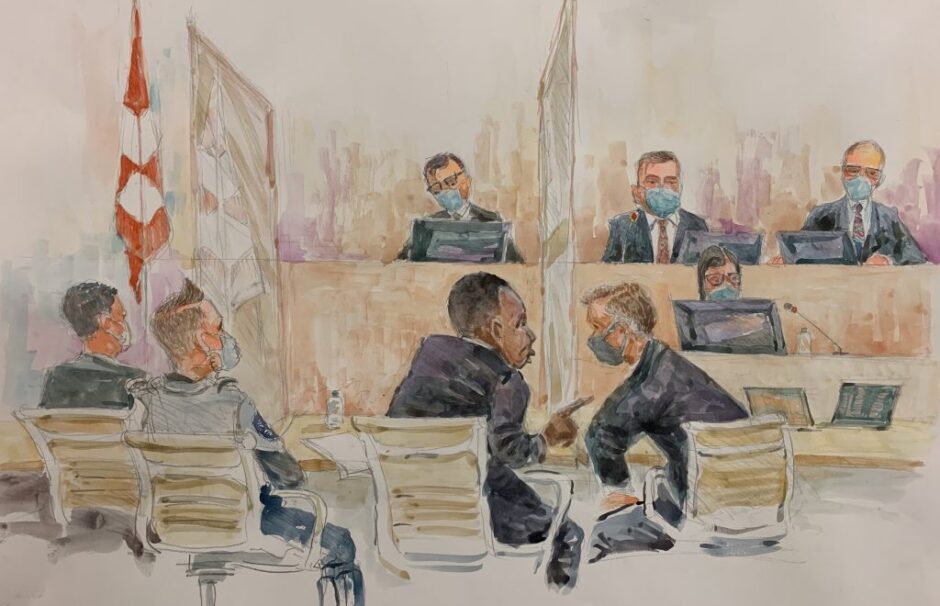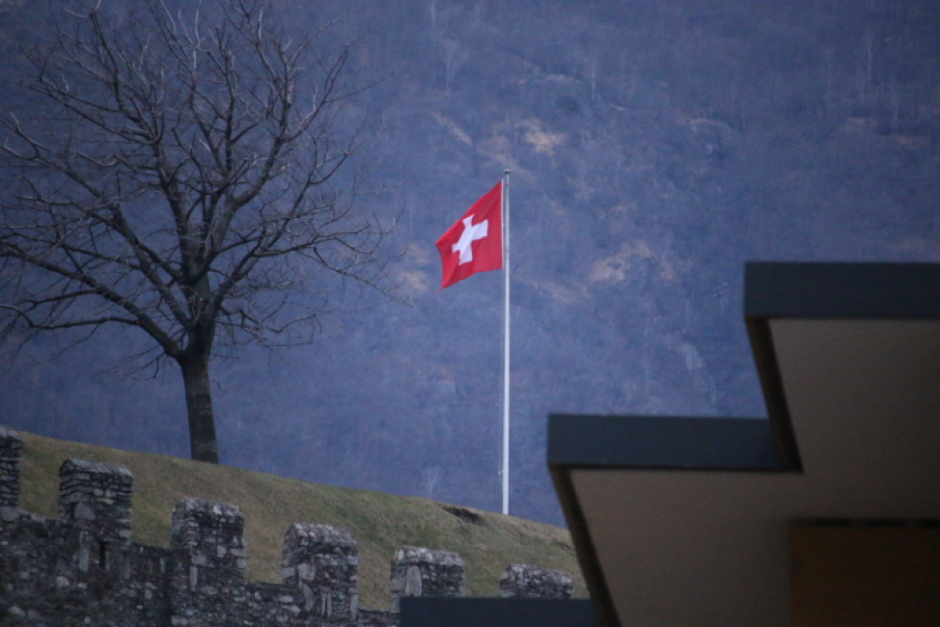
BELLINZONA, Switzerland – Alieu Kosiah sat near a bucket filled with human hearts in Foya, Lofa County in the mid-1990s, a man told the Swiss Federal Criminal Court prosecuting the former rebel commander on Friday.
According to the man, the fifth of seven plaintiffs who have brought the war crimes case against Kosiah, another rebel named “Mammie Wata,” told him, “‘What you see in the bucket are human hearts and they are for Kosiah.”
Kosiah, 45, is on trial in Switzerland for war crimes he allegedly committed in Lofa County in the early to mid 1990s. A former high-ranking office of the United Liberation Movement of Liberia for Democracy (ULIMO), he is accused of murder, cannibalism, rape, sexual enslavement, recruitment of child-soldier, looting and forced transportation. Kosiah, who faces a maximum 20-year imprisonment, denies the charges. He claims he was not in Lofa when the alleged offense were committed.
The man also testified that he saw Kosiah kill two brothers for failing to transport his looted goods and ammunition. The plaintiff was part of a group of 70 men that included the brothers whom Kosiah had forced to carry his stolen goods on their heads for a 12-hour journey from Pasolahun to Kolahun without eating drinking and resting, he said. When one brother Musa Kpandeh complained of exhaustion Kosiah threatened him.
“Kosiah said, ‘If you can’t carry the load to Kolahun, you will die right here,’” the plaintiff told the three-judge panel. “That is how they killed him.”
Among the stolen goods was a generator that supplied the town along with palm oil, cocoa, coffee and rice stolen from villagers.

The plaintiff, now a construction worker who travelled from Liberia to testify, said Kosiah murdered Morlu Kpandeh, the other brother, for failing to carry ammunitions from Gondolahun to Belle Fasama. The man had already walked a full day and stopped in the town of Sasahun, he said.
“He (Kosiah) told Morlu ‘Get…up and let’s go,’” the plaintiff testified. “The man said, ‘I cannot make’. Kosiah shot him in the head.” This testimony echoed what the court heard from the four other plaintiffs who have testified before the court this week. New Narratives has agreed to the plaintiffs’ request that their identities be concealed for fear of retaliation by those who do not want them to testify or who might seek to intimidate other witnesses who might be called upon to testify in future war crimes trials.
‘We returned as lions’
The man described ULIMO rebels under Kosiah’s command as “almost like gods. They could say when you were going to die.
ULIMO had a special song they sang when raiding towns and villages, he told the court and sang the words.
“Sister Musu, lie on my back let’s go and do our work. In 1990, we were running away. Now we return as lions.”
The rebels sang the song with Morlu Kpandeh was killed, the plaintiff told the court. “Kosiah can sing that song.”
The man had at first become overwhelmed with tears when he tried to sing the song for the court. His lawyers Alain Werner, of Civitas Maxism, and Romain Wavre consoled him and the court went for an impromptu break.
The song sums up the ULIMO, which was formed in 1991 by exiles from the Mandingo ethnic group and runaway soldiers of the Armed Forces of Liberia (AFL), who had been purged by rebels of Charles Taylor’s National Patriotic Front of Liberia. ULIMO battled the NPFL mainly in northern and western parts of the Liberia between 1991 and 1996. In 2009, Liberia’s Truth and Reconciliation Commission (TRC) found ULIMO committed 11,564 human rights violations throughout this period, the fifth-most crimes the commission heard.
Kosiah fled Liberia for Europe in 1997 when Charles Taylor became president. He eventually settled in Switzerland. In 2014, the man and six other Liberians filed a complaint against Kosiah, which led to his arrest in November that year and indictment in 2019.
Asked by the presiding judge why he lodged the complaint in the central European country bordering Italy, Germany, Austria and France, the plaintiff said he believed no one would listen to him in Liberia. He denied Kosiah’s accusation that he influenced the other six private plaintiffs to testify against the defendant. He said he only helped two people contact Global Justice and Research Project (GJRP), the Liberian-based group that works with Civitas Maxima, the Swiss nongovernmental organization that represents the plaintiffs. “I want justice to prevail,” he said.
Dmitri Gianoli, Kosiah’s lawyer, moved on from his earlier efforts to sow doubt as to whether his client Alieu Kosiah was the Alieu Kosiah who was a ULIMO commander.
In Friday’s hearing he focused on what he said were inconsistencies in the testimony against his client. On cross examination Gianoli asked the plaintiff why he told the court more now than he had told investigators before the trial. The defense lawyer questioned the number of shots fired in Morlu Kpandeh’s murder and queried whether the plaintiff was close enough to really see what happened during the alleged crime.
The plaintiff responded that he was answering in more detail now because he had more time in court than he had with the investigators in 2014, and that he could not say everything that happened nearly 30 years ago.
Gianoli asked the man to name more civilians who participated in the alleged forced transports in an effort to discredit his testimony. The man refused saying he could not name anyone for fear they would be targeted for retaliation.
The case is historic for Liberia and Switzerland, where the Geneva Conventions were signed in 1949 that set the rules for war. It is Switzerland’s first war crimes trial to be heard in a civilian court. Kosiah is the first Liberian to be tried for war crimes in connection to the Liberian Civil War (1989-2003), which killed an estimated 250,000 people and displaced a million.
The trial continues Saturday with the sixth private plaintiff.
This report was produced in collaboration with New Narratives as part of the West Africa Justice Reporting Project.
